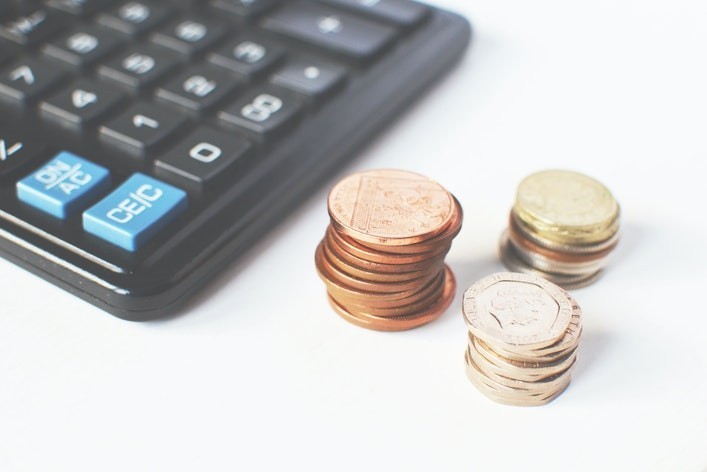
Are you looking for ways to properly manage your money? Should your money be in savings, checking, or investment accounts? It can be difficult to know where to put your money.
Did you know that about 69% of Americans don’t have up to $1,000 in their savings account? People are not saving enough and I think the pandemic has shown us that we need to be always prepared for anything, whether thinking short term or long term.
The best fix for that is to pay yourself first, always!! Easier said than done, I know. You can start as small as $25 every week (that’s $100 a month) Trust me, it goes a long way once you set and forget.
Money serves different purposes and it is good to have them in the appropriate places for various reasons.
Here’s how to properly manage your money:
1. Retirement fund
For those working a 9-5, take full advantage of the 401k plan if offered by your employer. There are other plans such as SIMPLE IRA, or 403b. If your employer matches, what the heck are you doing leaving money on the table? Take it now!!. Taking money out before seeing your paycheck moves you closer to preparing and securing your financial future.
You can start with 5-15% and increase as you wish. The perfect time to do it is now, especially in your 20s – your future self will thank you. Apart from the employer match advantage, your income tax is reduced since you’re contributing pre-tax money.
2. Checking account
Your paycheck goes into our checking account and becomes a central hub to distribute money. Some people choose to have multiple checking accounts for fixed expenses such as rent, food, and transportation, and another account for variable expenses such as eating out and traveling.
I have only one because it is easier for me to manage and I like to have all my expenses in one place. It is really up to you what you want.
Some of the best banks to use are Capital One 360, Charles Schwab checking, or even your local credit unions. Look for banks with no minimum balance or fees.
3. Create a budget/spending plan
“XYZ is offering 70% discount”; “Flash sale ends tonight!” – there’s always a sale going on and these clothing stores keep using their “sales” to take your money.
Even, I’m guilty of this lol, it is a learning process. Before buying anything, I always pause and ask myself: “Do I really need this?” If yes, I wait again for a few more days and if not, I close all my tabs and call it a day.
Account for your actual needs such as food, house rent, utilities, healthcare, and transportation. A budget can fix this, seriously, it can!
4. Emergency fund
As I mentioned earlier, we can both agree that the pandemic has taught us nothing, but to be prepared for emergencies. The rule of thumb for building an emergency fund is to save up to 3-6 months of monthly expenses.
It should be easily accessible and you can put money into a separate account such as a high yield savings account. It is strictly for emergencies only for situations like having a car breakdown, health problems, etc. Once you decide how much to save up, then start building up the amount like $200 or $500 a month into your preferred account.
I use Marcus by Goldman Sachs as my high-yield savings account for my emergency fund. Sign up using my referral to get an extra % APY.
5. Eliminate debt
Oh, debt! Pay off your student loans, credit card debt, personal loans, etc. There are two main methods to help pay off debt: the snowball method and the avalanche method.
The snowball method is when you pay the lowest balance first, then go to the next until you reach the highest debt last. The avalanche method allows you to tackle the amount with the highest interest rate first and then move on to the lowest rate last.
Some say that the avalanche is best to go with because you save money on interest, but others argue snowball is the best because you see the difference quickly. I say go with the debt that is the biggest concern for you; in the end, it all depends on your financial situation. This piece on MoneyUnder30 shows a technique to help you decide which is the best method to use.
If you have a plan in place to pay off your debt, then you’re definitely on the right track! Don’t give up and make sure to celebrate your small wins.
6. Work towards a goal
Have you heard the term sinking fund? The difference between an emergency and a sinking fund is the reason for saving. A sinking fund allows you to save money for a planned or upcoming expense like a trip to Bali or buying a car. An emergency fund is for an unplanned expense, hence, emergencies only!
Since you have an idea of what you want to use your money for, you can open a high yield savings account or a Certificate of Deposit (CD). Make sure to research the terms, withdrawal date, fees, and so on. Calculate how much to save up, when you need to use the funds and start putting money away every month.
Again, I use Marcus by Goldman Sachs for my sinking funds. Sign up using my referral to get an extra % APY.
7. Invest
The best time to invest was yesterday, the next best time is now! Make full use of time and compound interest, especially at a younger age. There are so many vehicles of investment. You have real estate, stocks, bonds, mutual funds, and index funds to mention a few.
Make your money work for you. The average return on the stock market is 7%-10% a year and even during a recession or downfall, the market always goes up.
If you want to start investing in the stock market, Robinhood is a user-friendly investment app made for beginners. Sign up on Robinhood using my link.
- If you’re new to investing, check out the posts on How to Start Investing in Stocks with No Experience and 10 Things You Need To Do Before You Start Investing.
Disclaimer: You invest at your own risk. Make sure you do extensive research before doing anything.
Final Note
You have to spend money to make money. Look for side hustles to make more money, get that well-deserved raise at work, change your job for a better-paying position, move to a cheaper state, or use your skills to make money. Don’t stop learning, your greatest asset is yourself!
Related Content:
- How to Start Investing in Stocks With No Experience
- 5 Reasons Why You Should Start Investing Early
- Read the Best Free Budgeting Apps
- The Best Credit Cards for Beginners
- How to Choose the Best Credit Card for You
What’s stopping you from paying off your debt, saving, investing, or making more money?
If you enjoyed this content, please comment, share, pin, and tweet!


